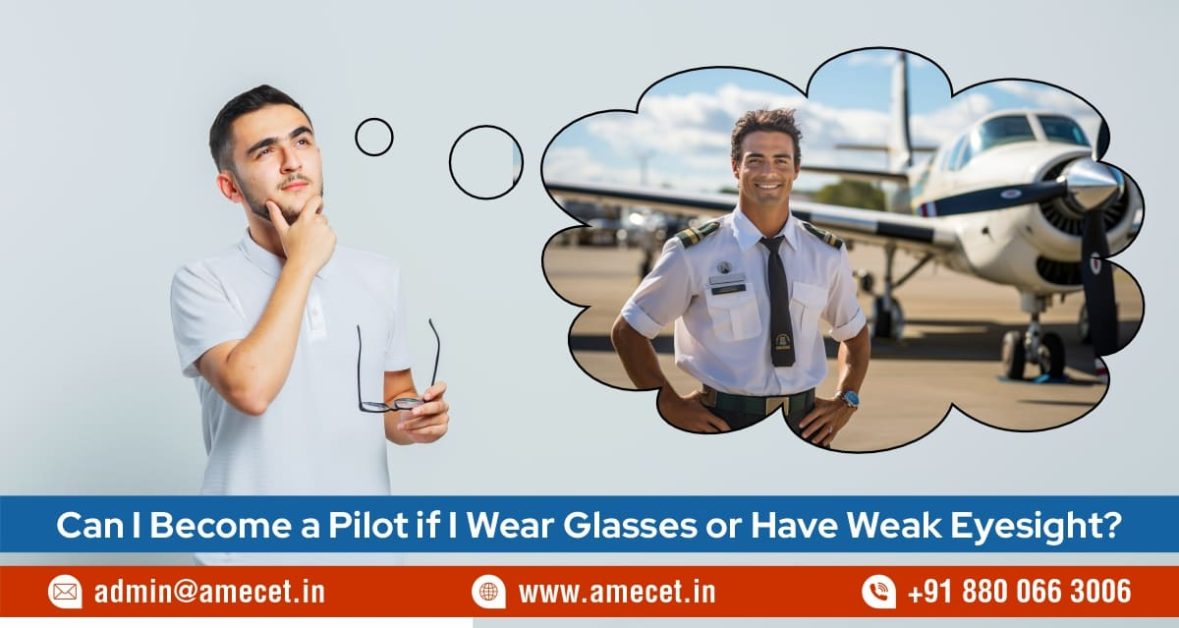Can I Become a Pilot if I Wear Glasses or Have Weak Eyesight?
Posted on : 22 August, 2025 12:19 pm
Yes, you can become a pilot even if you wear glasses or have weak eyesight, as long as you meet the medical standards set by the DGCA (Directorate General of Civil Aviation). Pilots must pass a Class 1 Medical Examination, which requires vision to be correctable to 6/6 in each eye with glasses or contact lenses. Near vision must be N5, and normal color vision is mandatory. Mild refractive errors like myopia or hyper metropia are acceptable if within limits. Many airline pilots wear glasses, so weak eyesight is not a barrier if corrected properly.
Medical Standards for Pilots
To become a pilot, candidates must clear a Class 1 Medical Examination conducted by DGCA-approved medical examiners. This check ensures the candidate is physically and mentally fit to operate an aircraft.
When it comes to eyesight, the rules are strict but not impossible to meet. The vision standards focus on visual acuity, color perception, and overall eye health rather than whether a person wears glasses.
Wearing Glasses and Pilot Eligibility
Yes, you can wear glasses and still become a pilot. The key requirements are:
- Distant Vision: Must be corrected to 6/6 in each eye with glasses or contact lenses.
- Near Vision: Must be N5 (normal reading vision) in each eye, with or without correction.
- Color Vision: Must be normal (no color blindness).
So, even if you have myopia (short-sightedness) or hyper metropia (long-sightedness), as long as it is within the permitted limits and correctable with lenses, you can qualify.
What About Weak Eyesight or High Power?
If your eyesight is extremely weak or your spectacle power is very high, you may face challenges. DGCA usually accepts up to ±3.5 diopters for refractive errors, though cases are assessed individually. Candidates with conditions like progressive eye diseases, squint, or severe color blindness may be declared unfit.
For those who undergo LASIK surgery, flying eligibility is possible if the surgery is stable, recovery is complete, and no complications remain. A medical certificate from a DGCA-approved ophthalmologist is required.
Tips for Aspiring Pilots with Glasses
- Get a comprehensive eye test from a DGCA-approved medical examiner before starting training.
- Maintain regular eye check-ups to ensure stable vision.
- Consider LASIK surgery only after consulting aviation medical specialists.
- Don’t rely on myths—many professional airline pilots wear glasses or contact lenses.
Wearing glasses or having weak eyesight does not mean you cannot become a pilot. As long as your vision can be corrected to meet DGCA’s Class 1 Medical standards and you don’t suffer from severe eye conditions, you are fully eligible. Many successful commercial pilots fly safely with corrective lenses.

